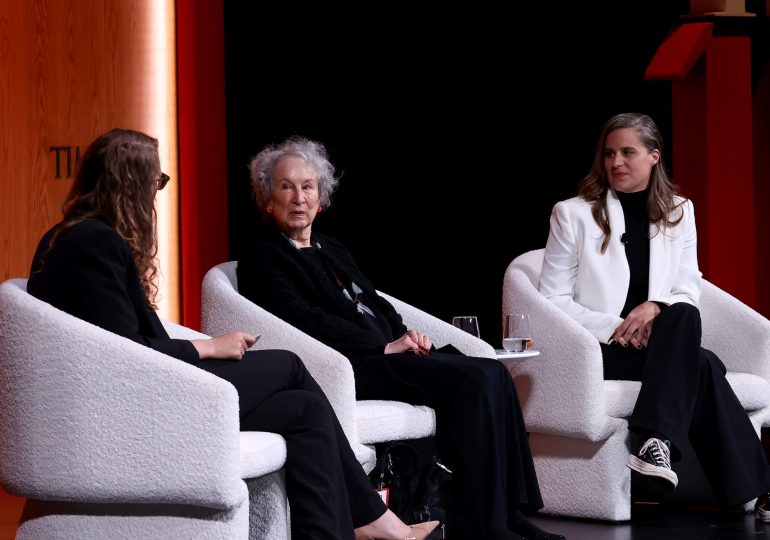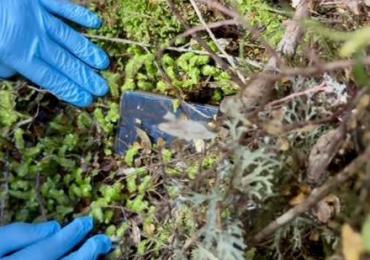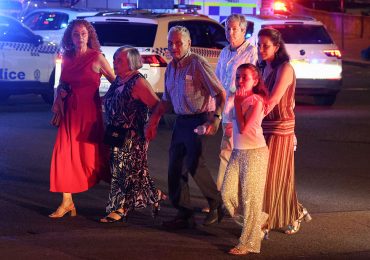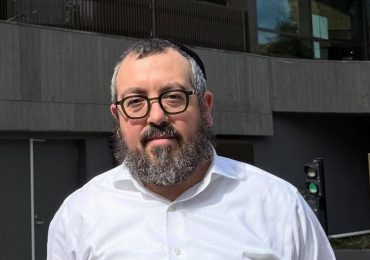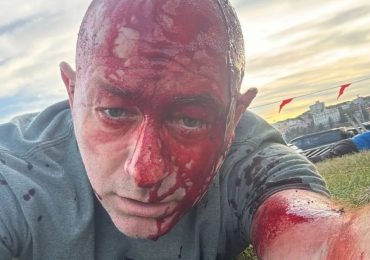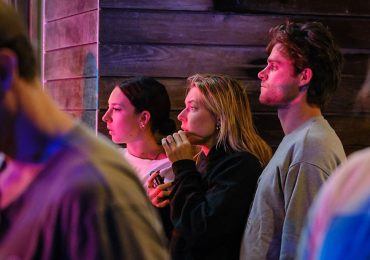Authors Margaret Atwood and Lauren Groff agree: it can be more effective to write truthfully about the contemporary world by situating stories in the past or in the future.
Both writers discussed their creative choices in conversation with TIME correspondent Eliana Dockterman on Wednesday at the TIME100 Summit in New York City. Atwood, who has written dozens of books spanning fiction, essays and poetry, based her setting for The Handmaid’s Tale on 17th century New England. Groff set her most recent work, survivalist novel The Vaster Wilds, in that time and place as well.
[time-brightcove not-tgx=”true”]
Both works deal with issues facing women, greater culture and the environment today: As Dockterman put it, they are “stories about women in moments of survival.”
“I wanted to talk about the modern age, but do it slant,” Groff said. “Historical fiction is an amazing way to do that. Every book is of the time you’re actually in, even if you put it into the future or put it into the past.”
Atwood noted that the challenge of writing a contemporary story is a general writers’ problem. “Present times are moving so quickly that it’s hard to get a point of fixation,” she said. “As soon as you write about something in the present day, it’s all changed.”
Those stories can nonetheless have profound effects on modern day society. Atwood published Handmaid’s Tale in 1985, and nearly 40 years later, the novel has taken on renewed significance after the fall of Roe v. Wade and threats to abortion access across the nation. Many protestors, in a nod to the garb in The Handmaid’s Tale, have been pictured filling legislative chambers and protest lines wearing long red robes and white bonnetts.
Groff also spoke of the current, growing threat in the U.S. to books themselves as groups push to ban books from schools or libraries that have content they disagree with. “Banning books is the first step to burning them,” she added.
Groff and her husband are opening a bookstore in Florida, where they have watched book bans grow to make up roughly 40 percent of the total bans in the country over the last few years.
“Talk about a Puritan theocracy,” Groff said with a nod to Atwood: “That’s what Florida is right now.” Even the massive number of Florida’s book bans and challenges alone isn’t the extent of the issue, Groff explained, as teachers are afraid of attempting to teach books that could be challenged, whether for LGBTQ+ content, issues about race, or other targeted topics. She added that a certain county of Florida has banned the dictionary because it includes the word “sex.”
“We wanted to be a lighthouse, we wanted to spread freedom of expression. We’re literally in the middle of the state in Gainesville, Florida, in the swamp, and we wanted to show that we’re watching. We’re here. The people whose voices are being erased, they matter,” Groff said. “The state of Florida doesn’t seem to value them, but we value them. We think that they’re important and they need to be heard and they need to see themselves reflected in the books.”
The TIME100 Summit convenes leaders from the global TIME100 community to spotlight solutions and encourage action toward a better world. This year’s summit features a variety of speakers across a diverse range of sectors, including politics, business, health and science, culture, and more.
Speakers for the 2024 TIME 100 Summit include actor Elliot Page, designer Tory Burch, Olympic medalist Ibtihaj Muhammad, WNBA champion A’ja Wilson, author Margaret Atwood, NYSE president Lynn Martin, comedian Alex Edelman, professor Yoshua Bengio, 68th Secretary of State John Kerry, actor Jane Fonda, and many more.
The TIME100 Summit was presented by Booking.com, Citi, Merck, Northern Data Group, Glenfiddich Single Malt Scotch Whisky, and Verizon.
Leave a comment
